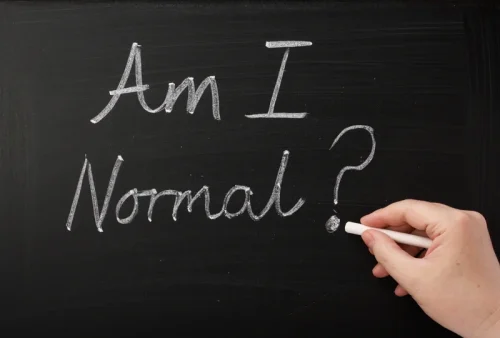Alcohol intolerance Symptoms & causes

It typically occurs because of a genetic difference that makes the body unable to break down alcohol efficiently. For those with chronic sinus issues or allergies, reducing or eliminating alcohol from your diet could yield significant improvements in overall comfort and health. Consulting with a healthcare professional about these concerns can provide tailored advice based on individual circumstances. Drinking water alongside alcoholic beverages is essential for maintaining adequate hydration. It’s also wise to limit intake during periods when you’re already experiencing sinus discomfort or congestion.
- Recognizing these symptoms can help individuals identify if their alcohol consumption is impacting their sinus health.
- When combined with multiple medications, alcohol can magnify the potential for negative interactions.
- Some individuals are sensitive or allergic to sulfites, which may cause nasal inflammation and congestion.
- Make a conscious effort to drink water throughout the day, as it can help thin mucus and prevent congestion.
- This release can lead to inflammation and swelling in the nasal passages, resulting in congestion.
How Alcohol Affects the Immune System
However, many people have also reported experiencing nasal congestion after consuming alcohol. But does alcohol actually cause nasal congestion, or is this just a coincidence? Additionally, alcohol inhibits the production of diamine oxidase (DAO), an enzyme that breaks down histamine in the body. With reduced DAO levels, histamine levels can rise, leading to histamine intolerance or overload. This can manifest as allergic-like symptoms, including nasal congestion, skin flushing, and gastrointestinal discomfort. Therefore, consuming beer, which contains histamines, can potentially worsen congestion and trigger a runny nose, especially in individuals with allergies or asthma.
Managing Congestion After Drinking
As mentioned above, some of the drinks most likely to cause asthmatic reactions are red, white, rose and sparkling wine; beer; and cider. Other alcoholic beverages, such as vodka and whiskey, can also lead to sinus pressure and congestion. Alcohol intolerance is most commonly caused by a body’s inability to properly break down the alcohol in a beverage, leading to an allergic reaction. This can result in increased production of mucus from the nose and throat, which causes nasal congestion. The presence of histamines in beer can cause various issues, particularly Substance abuse for individuals prone to allergies or asthma. Histamines can induce inflammation and excess mucus production in the nasal passages, resulting in a runny nose.
Red Wine And Nasal Congestion

When we think about alcohol tolerance, we often think of the number of drinks a person can handle before getting giggly or slurring words. Finally, acetate is further broken down into water and carbon dioxide and, voila! The process starts with an enzyme in your liver, called alcohol dehydrogenase (ADH), which converts ethanol into acetaldehyde. Alcohol is a central nervous system depressant, which is why people feel sleepy after they’ve had a drink or two, and why drinking a “nightcap” before you go to bed can sound appealing. Alcohol can trigger asthma attacks in patients who have previously been diagnosed with asthma.

Beer And Chest Congestion: A Risky Mix?
When DAO levels are reduced or inhibited, histamine levels can rise, leading to histamine intolerance or overload. This can result in symptoms resembling allergic reactions, including headaches, nasal congestion, skin flushing, and gastrointestinal discomfort. However, in some cases, what appears to be alcohol intolerance might actually be an allergic reaction to other ingredients in alcoholic beverages, such as grains, preservatives, or chemicals. These can include common allergens found in beer, such as yeast, hops, barley, and wheat. For example, red wine is more likely to cause a reaction due to its high histamine content, and beer contains sulfites, which can also trigger allergic reactions. It is important to note that not everyone experiences sinus congestion from drinking beer or other alcoholic beverages.

Certain foods like cheese or processed meats are known allergens for some individuals and can exacerbate inflammatory responses when consumed alongside alcohol. Alcohol is a complex substance that can have a wide range of effects on the body, depending on the amount consumed and the individual’s tolerance. When alcohol is ingested, it is absorbed into the bloodstream and distributed to various tissues and organs, where it can exert its effects. One of the primary effects of alcohol is vasodilation, or the widening of blood vessels, which can lead to increased blood flow and a range of physiological responses. If you are someone who experiences red wine congestion, try switching to white does beer cause congestion wine or avoiding alcohol altogether.
- Alcohol intolerance is caused by a genetic condition in which the body can’t break down alcohol efficiently.
- This effect can lead to increased blood flow in the nasal passages, potentially resulting in swelling and inflammation.
- Alcohol does not need to pass through the digestive tract in order to be digested; rather, it is absorbed directly into the blood stream.
- Skin flushing, a red face, and a heated, burning feeling on the face, neck, or chest are the outcomes of such a reaction.
- Additionally, drinking plenty of fluids like water, juice, and herbal teas can help soothe a sore throat and boost the immune system to combat infection.
- You can also replace your alcohol with healthier drinks like herbal tea or freshly squeezed juices.
In order to understand why alcohol and sinuses are related, it is important to understand how alcohol is processed in the body. However, alcohol doesn’t contain many nutrients so your body goes straight into processing it for waste removal. While some foods are broken down in the intestines, others are digested in the stomach. Alcohol does not need to pass through the digestive tract in order to be digested; rather, it is absorbed directly into the blood stream. Ok, so now that we’ve answered the question – why does my nose get stuffy when I drink? But even with our guide on how to get rid of a hangover, you may want to dig deeper beyond the simple remedies and solutions to determine whether there is a real cause for concern here.


